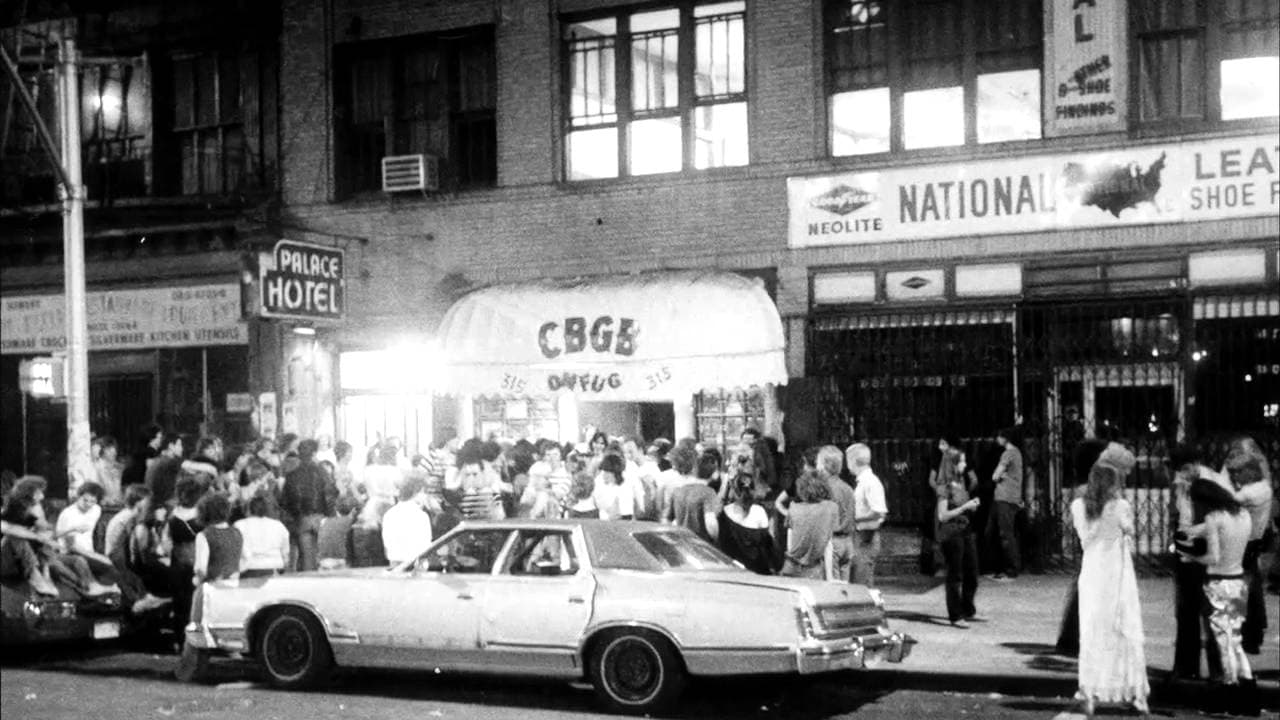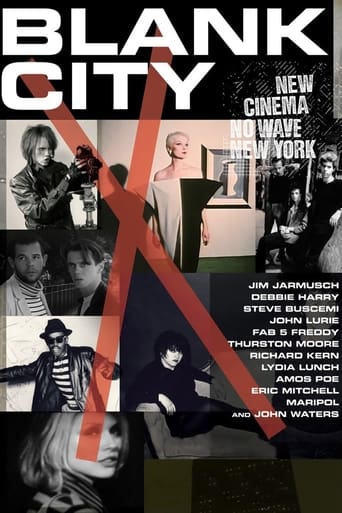

I really liked how this movie reminds us of a time when New York was more dangerous and dirty. If you really like Sonic Youth and other angular music, then you should see this as a refresher course. The film also touches upon how AIDS claimed the lives of some of the people mentioned. I would recommend another film about the Grammercy Park Hotel, which also touches on this period before Reagan. Maybe something had to do with Andy Warhol being alive at the time? This was also an era when there was at least some artistic creativity which didn't pander to mainstream America. Yes, it's true that Richard Kern took erotic photos of young girls, but they have an edgy artistic quality which today still seem a little dangerous. It's hard to believe the girls now are in their late 40's early 50's(or maybe AIDS victims).
... View MoreWhen this was at Edinburg, this is what they said: Today, Manhattan is a byword for overpriced property, overexposed landmarks and overdressed fashionistas. In the late 70s, however, it was rat-infested, crime- crippled, cheap and nasty - somewhere for America to dump its immigrants, poor people and artists. Music, art, fashion and filmmaking burgeoned, fueled by drugs, dares, fads, feuds, and a fair helping of madness. LIttle of this is true. NYC has always been about fashion and high prices. Just look at New Yorker Magazine from 1923!!The movie is sort of boring. Let's be honest, these filmmakers are not very good. And there is little new in this documentary that hasn't been covered a gazillion times before.And how many times can you listen to some now rich idiot say "there wasy no money" "we did it for no money" "we didn't have any money."Who does when your 18? What a borefest
... View MoreBLANK CITY is a surprisingly sterile account of the New York City underground film movement of the late 70's and early 80's, covering such directors as Amos Poe, Richard Kern, Charlie Ahearn, Jim Jarmusch, etc. The film fatally falters in spending its 90 minutes proselytizing to the uninitiated, taming its overly slick presentation into a film that lacks all of the rage, cynical sincerity or glorious bloodletting of the Cinema of Transgression that it attempts to tell the history of. The filmmakers were unfortunately in such bleary-eyed awe of what they were being told by those in front of their cameras to question it and search for the real film here: which is not a prolonged multi-voiced soliloquy on how "undeniably and vitally important" this movement was, but rather the reality of these filmmakers' obscurity. I arrived to the film well familiar with many of the filmmakers, if not the films, included in BLANK CITY and I can say I am a fan. But there is a reason most people have not heard of Nick Zedd, et al. And that is that the films are enjoyably merely as a bratty novelties. They do not really survive as any great artistic achievements. The people who made them were hardly the geniuses herded together in, say, the French New Wave or the new American cinema of the 1960's and 70's. And BLANK CITY, god bless its naive little heart, really attempts to convince you they are. You're told by all the usual suspects (Thurston Moore, John Waters, and Jim Jarmusch seem to be contractually obligated to appear in EVERY film on the period to echo the same soundbites) over and over about how innovative and brave these films were. And you're not told much else as the documentary flits past this clip or that. Yes, there are the requisite anecdotes about poverty and such, but we've heard them all before in SO many other films. The result is a sort of congealed DVD commentary over films most people, frankly, won't be that curious about. You get the sense the documentary is trying to convince itself of its own purpose, of its own need-- "SEE! LOOK HOW GROUNDBREAKING ALL OF THIS IS!" Yes, many of the No Wave films are worth a look for any cinephile. But BLANK CITY is disingenuous (or perhaps just undereducated) in pitching that those filmmakers broke any more ground by DIY-ing it to make their rebel images than Jack Smith did 20 years before or even Hans Richter did 40 years before that. The director seemed a bit disingenuous as well when, in presenting the film at the EIFF last week, she said that she felt she was working in the same manner and tradition because she had only "one...or maybe two credit cards to work with." I pitied her completely missing the point of the movement she was documenting. And the film suffers very much for it, for all of its sheen and optimism. BLANK CITY, in attempting to exploit the underground to a larger audience, finds its teeth surrendered, pieced together as little more than the run-of-the-mill historical survey of talking heads and animated titles and pictures that you might find on MTV or VH1. It learned nothing from the films it studies in way of originality or outrage. It's...polite. And it's guilty, in its stubborn propagandizing, of glossing over the reality of what befell these filmmakers. Most gave up. Some sold out (Amos Poe and his desperately and embarrassingly commercial outings of the 80's come to mind). Some like Kern, became pornographers of still-pubescent girls. Jarmusch made it and generally because he abandoned the methods so endorsed in BLANK CITY. But by and large, the pantheon gathered here is not of cinematic Gods, but wretches and failures and outcasts. And THAT is what is so glorious and fascinating about that underground movement of that period. THAT is what might have yielded an honest and far more compelling documentary on its subjects, á la Errol Morris, far more so than pleading on their behalf for their acceptance. THAT is what might have been keeping in spirit with the No Wave. I give the film 3 stars for its technical proficiency and because there are some expected choice insights from John Waters and Steve Buscemi, in particular. If you're not one of the very few fans of that movement, you'll probably be bored by the documentary's constant advertising of it. If you are, though, it's worth catching it at a festival if only to see some of those clips on the big screen. I don't imagine it will be shown elsewhere; it's nearly two years old and still undistributed (a result, I suspect, of the uber-niche audience it would draw commercially, if any, and of the extensive use of clips and music which I imagine must be very expensive to deliver).
... View MoreBlank City is about the underground New York City film-makers who sprang up in the post-punk years. The films that were made were amateurish and technically raw; they were made with next to no money and they featured for the most part non-actors; their subject matter was often shocking and confrontational. Without doubt, the punk spirit was very much alive in these movies. It was known as the No Wave movement.I saw this at the Edinburgh International Film Festival and I'm going to be upfront here and admit that I was under the impression from the EIFF brochure that this was going to be about something else. It sounded like it was going to cover the post-punk scene in the grimy streets of NYC circa 1980. But really, this documentary is more or less only about these underground films and filmmakers. While many of the participants are fascinating and some of the films seem odd and of-their-time enough to be of interest, I just felt that for my tastes the material was stretched out to breaking point. I was hoping that the music scene would be given some exposure too, to compliment proceedings but that just didn't happen. Having said that, having heard some Lydia Lunch recordings in the past this may not have been strictly a bad thing. I guess I was essentially hoping for NYC post-punk music to be covered more generally, rather than specifically the No Wave movement, of which I am not keen on at all. At least in the 60's the art films of Andy Warhol had The Velvet Underground to soundtrack them.It's certainly interesting in places and occasionally funny. But it does get a bit wearing after a time. This would most probably have made a much better short film; it doesn't in truth really justify its feature length as there just isn't enough development in content or trajectory. It's an admirable effort but sadly it just wasn't for me.
... View More